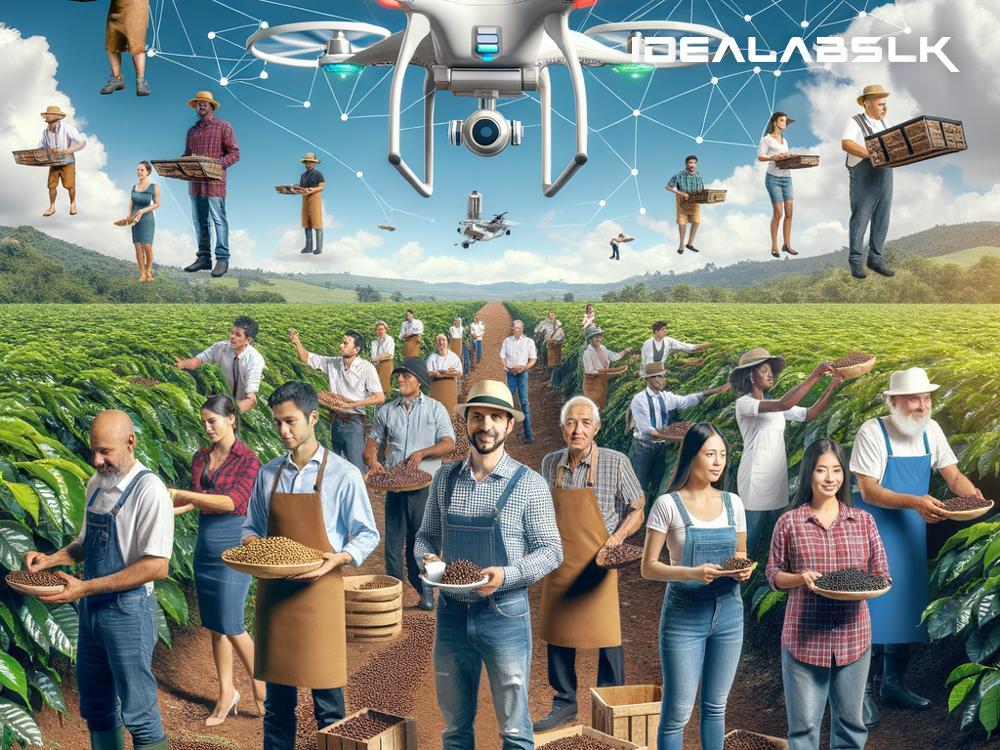Unveiling the Future of Coffee: How Blockchain Can Brew a Better World
Morning routines around the globe share a common thread — the rejuvenating sip of coffee. From the aroma that entices the senses to the warmth that greets the soul, coffee is more than a beverage; it's a universal ritual. Yet, behind this global affinity lie stories of hardship, environmental challenges, and ethical dilemmas. The journey from bean to cup often involves countless farmers working under stringent conditions, with sustainability and fairness frequently left by the wayside. Here's where technology, specifically blockchain, steps in as a beacon of hope. Let's explore how blockchain technology is poised to revolutionize ethical coffee certification, turning every sip into an act of global goodness.
What is Blockchain?
Before diving into its applications, let's simplify blockchain. Imagine a transparent, unchangeable ledger accessible by everyone but owned by no single entity. This ledger records transactions in blocks, linked together to form a chain — hence, blockchain. The beauty lies in its transparency and security; once information is entered, it's nearly impossible to alter. Originally the backbone of cryptocurrencies like Bitcoin, blockchain's potential stretches far beyond, offering solutions for various industries, including agriculture and, more specifically, the coffee sector.
The Bitter Truth Behind Your Coffee
While coffee thrives as a beloved commodity, its production journey is often laced with ethical and environmental concerns. Many coffee farmers live in poverty, unable to fetch fair prices for their labor-intensive work. Moreover, the lack of traceability and transparency in the supply chain allows for unfair practices and environmental degradation to go unchecked. Here enters ethical coffee certification, a noble endeavor aiming to ensure fairness, sustainability, and quality. Yet, the current system faces criticism for its inefficacies, high costs, and occasional lack of reliability.
Brewing a Solution With Blockchain
Blockchain technology emerges as a transformative solution, promising to address the shortcomings of traditional ethical coffee certification processes. Here’s how:
-
Traceability and Transparency: Leveraging blockchain, every bean's journey can be transparently traced from the farm to the cup. This process ensures that claims regarding organic farming or fair trade practices are verifiable by anyone. Consumers can scan a QR code on their coffee package and witness the journey themselves, fostering trust and encouraging conscious consumption.
-
Fair Compensation: Through smart contracts, blockchain can streamline the payment process, ensuring farmers are paid promptly and fairly. Smart contracts are self-executing contracts with the terms of agreement directly written into code. When a coffee batch is confirmed as delivered and meets expected quality standards, the payment is automatically released to the farmer without intermediaries, reducing the risk of exploitation.
-
Reducing Counterfeit: Blockchain's immutable nature means once something is recorded, it's set in stone. This feature is pivotal in counteracting counterfeit certifications, where some entities falsely claim ethical practices for profit. With blockchain, a coffee's certification integrity is preserved, maintaining the value and trust in ethical labeling.
-
Encouraging Sustainability: By transparently showcasing sustainable practices and rewarding them through market preference and fair premiums, blockchain incentivizes farmers to adopt environmentally friendly practices. This shift could have a considerable positive impact on the ecosystem.
The Future: A World Where Every Sip Matters
Imagine a world where every coffee purchase supports fair compensation for farmers, encourages sustainable agriculture, and contributes to the well-being of coffee-producing communities. This vision is not just a caffeine-induced daydream but a tangible future made possible by blockchain technology.
Challenges Ahead
Implementing blockchain in the coffee industry isn't without hurdles. There are technological barriers, the need for widespread adoption, and the challenge of simplifying complex concepts for all stakeholders. Plus, the transition requires investment in infrastructure and education, especially in remote coffee-producing areas.
Brewing Hope
Despite the obstacles, the potential of blockchain for ethical coffee certification is vast and promising. By addressing the root issues of transparency, fairness, and sustainability, blockchain can transform the coffee industry into a beacon of ethical practices.
As the technology matures and more stakeholders join the movement, the dream of a fully traceable, fair, and sustainable coffee supply chain seems increasingly attainable. So, next time you enjoy your coffee, imagine the powerful story of transformation behind each sip — a story where technology brews hope, cup by cup.
Blockchain technology has the power to redefine the coffee industry, making every coffee lover not just a consumer but a conscious contributor to a better world. Let's raise our mugs to that future!

